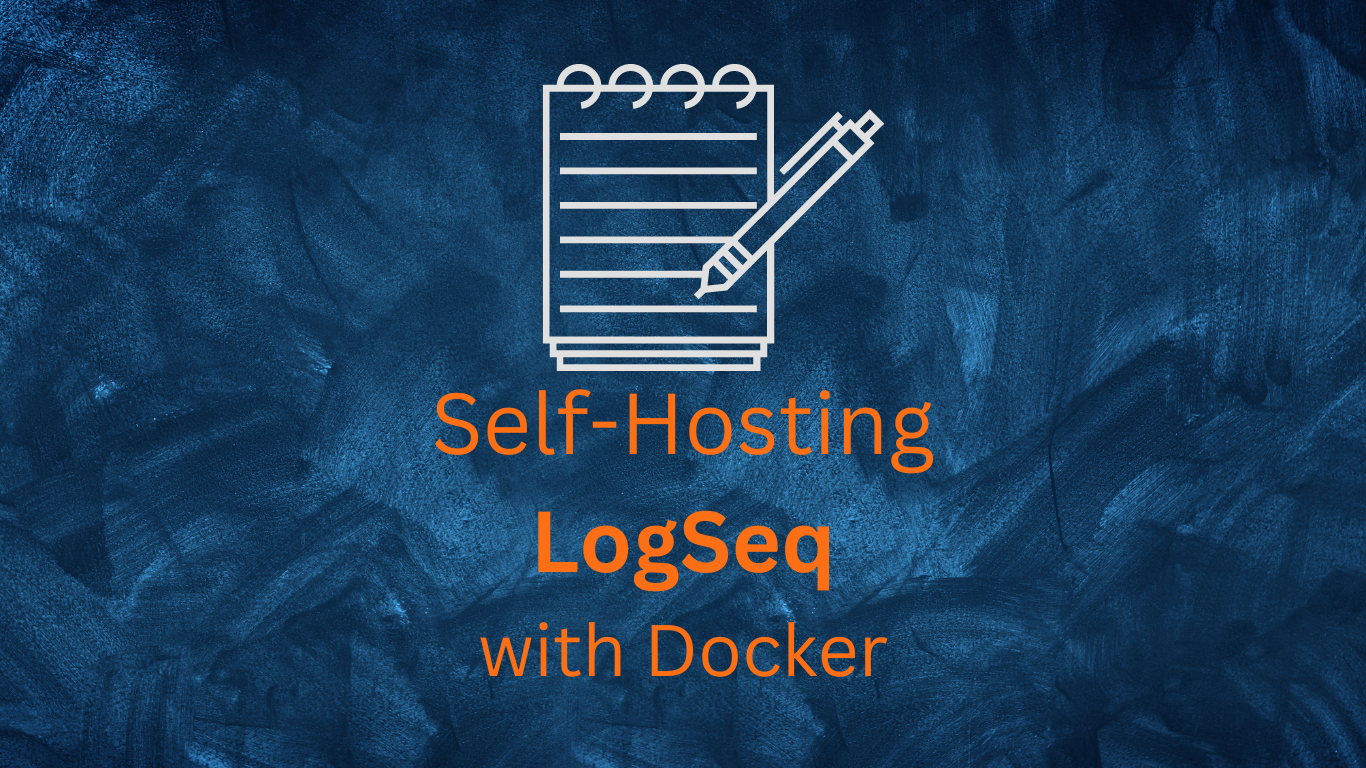Tired of proprietary note-taking apps that limit your freedom and drain your wallet?
Look no further than Logseq, your free & open-source note-taking!
Why LogSeq?
LogSeq is a FREE alternative to Obsidian 📝
LogSeq Key PROS 👇
-
Freedom: Logseq is built on open-source principles, meaning you have full control over your data and the software itself. No more vendor lock-in or worrying about your notes being held hostage. 🗝️
-
Privacy: With Logseq, your data stays where it belongs: with you. Say goodbye to concerns about your sensitive information being mined for profit. 🔒
-
Community: Join a vibrant community of like-minded individuals who are passionate about open-source software and knowledge sharing. Collaborate, learn, and grow together with Logseq. 🌐
-
Flexibility: Whether you’re a student, a professional, or an avid learner, Logseq adapts to your needs. Organize your thoughts, plan your projects, and unleash your creativity without limitations. 🚀
-
Cost: Best of all, Logseq won’t break the bank. Say goodbye to costly subscriptions and licensing fees. With Logseq, the power of open-source note-taking is at your fingertips, completely free of charge. 💸
Get Started with LogSeq
In my case, it was Logseq’s dedication to openness, accessibility, and community that won me over.
What made me stay? Well, you can use Ollama - F/OSS Local LLMs together with LogSeq.
The LogSeq Project
As mentioned, LogSeq is a completely open project:
LogSeq, a Fully Open Source Note Taking App with AI Support
SelfHosting LogSeq
Pre-Requisites! Just Get Docker 🐋👇
You can install Docker for any PC, Mac, or Linux at home or in any cloud provider that you wish. It will just take a few moments. If you are on Linux, just:
apt-get update && sudo apt-get upgrade && curl -fsSL https://get.docker.com -o get-docker.sh
sh get-docker.sh
#sudo apt install docker-compose -yAnd install also Docker-compose with:
apt install docker-compose -yWhen the process finishes, you can use it to self-host other services as well. You should see the versions with:
docker --version
docker-compose --version
#sudo systemctl status docker #and the statusLogSeq with Docker
We are going to use the LogSeq docker image available at their Github Container Repository:
LogSeq With Docker CLI
docker pull ghcr.io/logseq/logseq-webapp:latest
The recommended way to install LogSeq - with this Docker-Compose configuration file:
#version: '3.8'
services:
logseq:
image: ghcr.io/logseq/logseq-webapp:latest
ports:
- "3000:3000" # Expose Logseq on port 3000
environment:
- LOGSEQ_SERVER_PORT=3000 # Set the Logseq server port
restart: unless-stopped
# volumes:
# - logseq_data:/path/to/data # Uncomment and set the path if you need persistent storage
# Uncomment the following lines if you need persistent storage
# volumes:
# logseq_data:
Now you can enjoy LogSeq at: localhost:3000
And here you have some guides to help you improve your Workflow with LogSeq
Making LogSeq Better
LogSeq is already great. But we can make it even better.
LogSeq Plugins
- You can get more inspiration at Reddit
- Some F/OSS LogSeq Plugins
Logseq ❤️’s Ollama
AI Powered Notes with the Ollama - LogSeq Plugin.
You will be able to perform few interactions with Ollama directly from Logseq UI, for example:
- Ask Ai -> which is a prompt the AI freely without any context
- Ask Ai with context -> This is the same as Ask Ai but it gives the model the context of the current page
- Summarize -> Summarizes the whole page
Thanks to Omagdy7 who released the Plugin under MIT License.
What? You don’t SelfHost FREE LLMs with Ollama 🦙, yet?
FAQ
F/OSS LogSeq Alternatives
- Trilium Notes - MS One Note F/OSS Alternative
- Joplin
